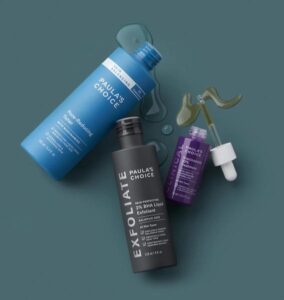When it comes to dressing babies, parents are increasingly turning to organic cotton onesies as a comfortable, safe, and environmentally friendly option. In this blog post, we will cover everything you need to know about organic cotton onesies, from the benefits of organic cotton to how to choose the best onesie for your baby. We’ll also explore why organic cotton is the preferred choice over conventional cotton and synthetic fabrics.
1. What Are Organic Cotton Onesies?
Organic cotton onesies are baby garments made from cotton grown without the use of synthetic pesticides, herbicides, or genetically modified organisms (GMOs). The cotton used is cultivated using methods that promote soil health, reduce pollution, and encourage biodiversity. This makes organic cotton onesies a safer option for your baby’s delicate skin while contributing to a healthier planet.
2. Benefits of Organic Cotton Onesies
Organic cotton onesies offer several advantages for both parents and babies. Below, we break down the top benefits that make them a go-to choice for parents who are looking for the best clothing option for their little ones.
a. Safe for Baby’s Sensitive Skin
Babies have sensitive skin that is prone to irritation and allergic reactions, especially when exposed to harsh chemicals often found in conventional fabrics. Organic cotton onesies are free of synthetic chemicals, making them a hypoallergenic option that is gentle on the skin. They are also typically softer, providing comfort for babies who spend a lot of time in their onesies.
b. Environmentally Friendly
Organic cotton farming reduces the environmental impact of cotton production by avoiding harmful pesticides, fertilizers, and water-intensive practices. Conventional cotton farming is notorious for being one of the most pesticide-dependent industries, which can lead to soil degradation and water contamination. By choosing organic cotton onesies, you’re contributing to more sustainable farming practices and reducing your carbon footprint.
c. Durability and Softness
Organic cotton is known for being softer and more durable than conventional cotton. This is due to the absence of chemical treatments that can weaken fibers over time. Organic cotton onesies tend to hold up better through repeated washings, making them a great long-term investment for your baby’s wardrobe.
3. Difference Between Organic and Conventional Cotton Onesies
Understanding the differences between organic and conventional cotton is essential to making an informed purchase. Here are the key distinctions:
a. Farming Practices
Organic cotton farming relies on natural processes to maintain soil fertility and control pests. Crop rotation and composting are some of the methods used to nurture healthy soil, leading to sustainable cotton production. Conventional cotton farming, on the other hand, depends heavily on chemical fertilizers and pesticides that can deplete the soil and harm local ecosystems.
b. Use of Chemicals
Conventional cotton onesies are often made using cotton that has been treated with toxic chemicals during both the growing and manufacturing processes. These chemicals can remain in the fabric, potentially causing skin irritation for your baby. Organic cotton is free of these chemicals, providing a safer, non-toxic alternative.
c. Impact on the Environment
The environmental impact of conventional cotton farming is significant, with high water consumption, soil degradation, and pesticide runoff being major concerns. Organic cotton farming uses significantly less water and encourages biodiversity, making it a much more sustainable option. If you’re looking to reduce your environmental impact, organic cotton onesies are the way to go.
4. How to Choose the Best Organic Cotton Onesie
When shopping for organic cotton onesies, there are several factors to consider to ensure you’re making the best choice for your baby. Here’s a checklist to guide you:
a. Fabric Quality
Look for onesies made from 100% organic cotton, as some brands may mix organic cotton with synthetic fibers. The softness and durability of the fabric will depend on the quality of the cotton used.
b. Fit and Comfort
A good onesie should be snug but not too tight, allowing your baby to move freely. Choose onesies with stretchy necklines or snap closures for easy dressing and diaper changes. It’s also important to check the stitching to ensure it’s smooth and won’t irritate your baby’s skin.
c. Design and Functionality
While style is often secondary to comfort, it’s always nice to have a cute design. Many organic cotton onesies come in a variety of prints, patterns, and colors, so you can choose something that matches your baby’s personality. For newborns, look for onesies with integrated mittens to prevent scratching.
d. Certifications to Look For
Several certifications can help you verify the authenticity of organic cotton onesies. Some of the most trusted include:
- GOTS (Global Organic Textile Standard): Ensures that the cotton is organically grown and processed in an environmentally and socially responsible manner.
- OEKO-TEX Standard 100: Certifies that the fabric is free of harmful chemicals and safe for sensitive skin.
5. Popular Brands Offering Organic Cotton Onesies
Several brands are known for producing high-quality cotton onesies. Below are a few trusted names that provide safe, sustainable options for your baby:
a. Burt’s Bees Baby
Burt’s Bees Baby is well-known for its soft, breathable cotton onesies. Their products are GOTS certified, ensuring that they meet the highest environmental and social standards.
b. Finn + Emma
Finn + Emma offers stylish cotton onesies that are both eco-friendly and ethically made. The brand uses only GOTS-certified cotton and employs fair trade practices in its manufacturing.
c. Pact
Pact is a brand committed to sustainability, offering it that are both comfortable and affordable. Their products are certified by GOTS, ensuring high environmental standards.
6. Caring for Your Organic Cotton Onesies
To maximize the lifespan of your cotton onesies, proper care is essential. Here are some tips for washing, drying, and storing them:
a. Washing Tips
- Use cold water and a gentle, natural detergent to prevent the cotton from shrinking or losing its softness.
- Avoid using fabric softeners, as they can coat the fabric and reduce its breathability.
- Wash onesies with similar colors to prevent color bleeding.
b. Drying and Storing Instructions
- Air drying is the best option for organic cotton, as it prevents shrinkage and keeps the fabric soft.
- If you need to use a dryer, choose a low heat setting to avoid damaging the fibers.
- Store onesies in a cool, dry place to prevent mold or mildew growth.
FAQs on Organic Cotton Onesies
Q: Are cotton onesies more expensive?
A: It can be slightly more expensive than conventional ones, but the benefits—such as safety for your baby and environmental sustainability—make them worth the investment.
Q: How can I tell if a onesie is truly organic?
A: Look for certifications like GOTS or OEKO-TEX to ensure the fabric meets organic standards.
Q: Are cotton onesies suitable for all seasons?
A: Yes! Organic cotton is breathable and can help regulate your baby’s temperature, making it suitable for both warm and cool weather.
Conclusion: Why Choose Organic Cotton Onesies?
Choosing organic cotton onesies for your baby is a decision that benefits both your little one and the planet. Organic cotton is softer, safer for sensitive skin, and more durable, providing excellent value for money. Additionally, by supporting sustainable farming practices, you’re contributing to a healthier environment for future generations.
When shopping for it, be sure to check for certifications and choose brands that prioritize sustainability and ethical manufacturing. Whether you’re a first-time parent or expanding your baby’s wardrobe, these are a wonderful, eco-friendly choice that ensures your baby’s comfort and well-being.




